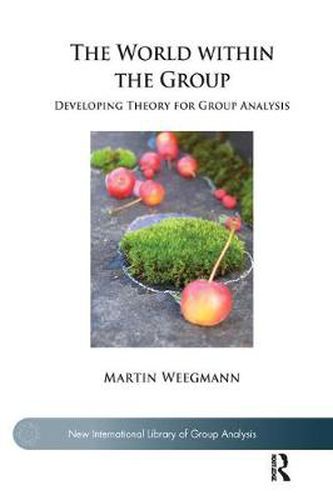Readings Newsletter
Become a Readings Member to make your shopping experience even easier.
Sign in or sign up for free!
You’re not far away from qualifying for FREE standard shipping within Australia
You’ve qualified for FREE standard shipping within Australia
The cart is loading…






The World within the Group is an original and ambitious endeavour to connect group analysis to philosophy, history, and modern social theory. The book argues that group analysis needs theoretical renewal to remain relevant, and that philosophy is a valuable resource for such thinking. In particular, the work of three philosophers is examined: Nietzsche, Dewey, and Gadamer, each being associated with pragmatic-perspective inquiry. The author demonstrates that group analysis is compatible with such inquiry, and that we understand and intervene from within the horizon of specific traditions of training and theory. Group analysis typifies an unremitting relational stance, valuing openness of dialogue, and moving in and out of the perspectival worlds of the participants. The book also offers a re-formulation of the concept of social unconscious, seen as a discursive world of production and articulation. Drawing on contemporary social theories, it chimes with the spirit of Elias’s historical approach.
$9.00 standard shipping within Australia
FREE standard shipping within Australia for orders over $100.00
Express & International shipping calculated at checkout
Stock availability can be subject to change without notice. We recommend calling the shop or contacting our online team to check availability of low stock items. Please see our Shopping Online page for more details.
The World within the Group is an original and ambitious endeavour to connect group analysis to philosophy, history, and modern social theory. The book argues that group analysis needs theoretical renewal to remain relevant, and that philosophy is a valuable resource for such thinking. In particular, the work of three philosophers is examined: Nietzsche, Dewey, and Gadamer, each being associated with pragmatic-perspective inquiry. The author demonstrates that group analysis is compatible with such inquiry, and that we understand and intervene from within the horizon of specific traditions of training and theory. Group analysis typifies an unremitting relational stance, valuing openness of dialogue, and moving in and out of the perspectival worlds of the participants. The book also offers a re-formulation of the concept of social unconscious, seen as a discursive world of production and articulation. Drawing on contemporary social theories, it chimes with the spirit of Elias’s historical approach.